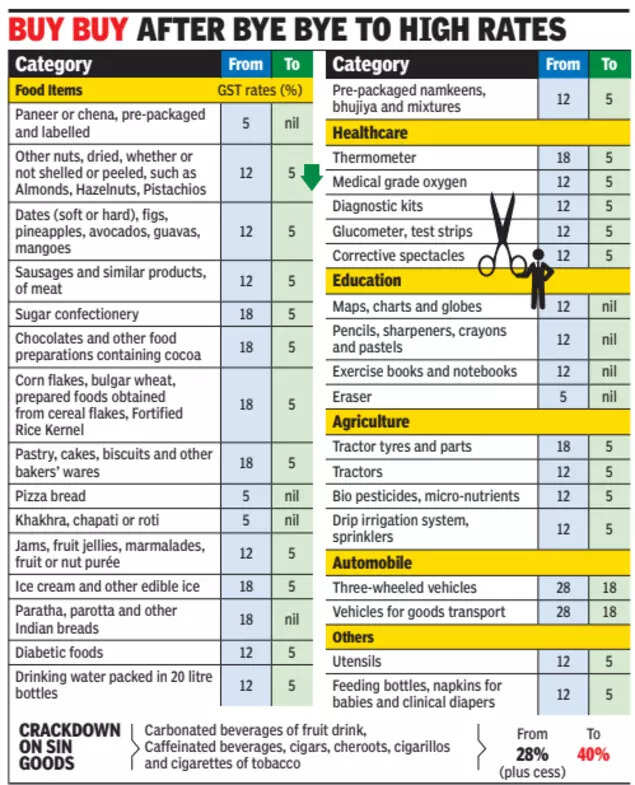The GST Council’s decision to slash tax rates on everyday essentials and personal-use products ahead of the festive season is expected to revive domestic consumption, lift rural demand, and strengthen growth in the FMCG sector, industry leaders said on Thursday.According to news agency PTI, FMCG companies plan to pass on the benefits to consumers either by increasing grammage or cutting stock-keeping unit (SKU) prices, with analysts estimating price drops of 8–10% depending on brands, translating into 2–3% growth for the industry.
Calling the move “game changing”, Marico MD & CEO Saugata Gupta said, “By making essential consumer products more affordable, especially in the run-up to the festival season, these reforms will play a pivotal role in stimulating economic momentum and building long-term growth in the FMCG sector.”Dabur CEO Mohit Malhotra termed it a “timely and transformative move,” stressing that the cuts will make soaps, shampoos and toothpastes more affordable, while driving demand in rural and semi-urban markets.Godrej Consumer Products CFO Aasif Malbari welcomed the decision, stating the company was committed to passing on benefits to consumers. The All India Consumer Products Distributors’ Federation (AICPDF) said the reduction would improve distributor and retailer liquidity by Rs 4,000–5,000 crore, while boosting rural consumption by an estimated 8–10% in the next two quarters.

Shares of leading FMCG firms surged following the Council’s approval. Britannia, Dabur, HUL, Nestlé and Emami all logged strong gains on the BSE, while consumer durables and cement stocks also rallied. The GST cuts cover a wide range of items, from hair oil, shampoo, toothpaste and soap to food products like butter, dry fruits, ice cream, biscuits and beverages, with rates slashed to 5% from 12% or 18%. Cement will now attract 18% GST instead of 28%.As per PTI, Joy Personal Care Chairman Sunil Agarwal said rural India, already driving FMCG growth for six quarters, will see further demand strength. Industry executives added that retailers are bracing for strong festival sales rebound as companies implement revised prices on existing stock.Grant Thornton Bharat’s Naveen Malpani noted that the cuts could lead to price drops of 8–10% depending on supply chain efficiencies, further stimulating consumption.Industry experts believe the reforms will add 2–3 percentage points to FMCG sector growth, which is currently expanding at 10–12% annually, making the reform a “landmark step” ahead of the festive season.


